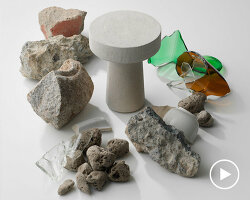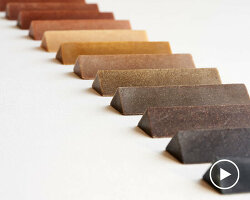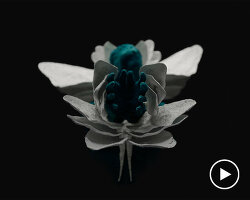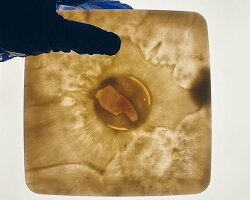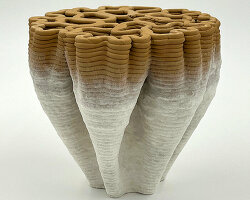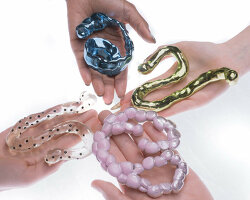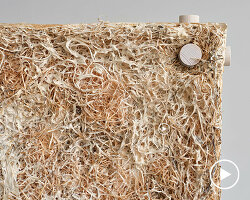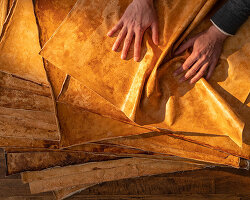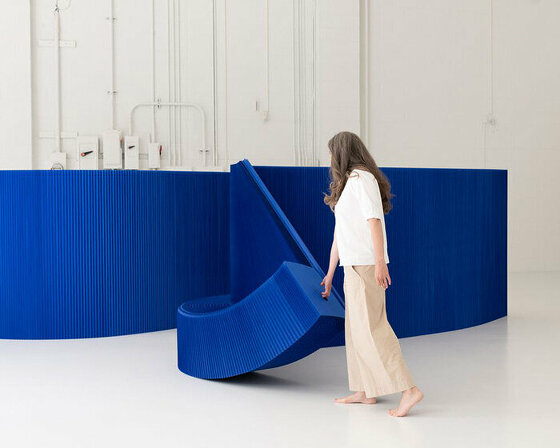a biotechnology company founded by artists is on a mission to create the highest quality materials using mycelium, the fine network of threads which form mushrooms. MycoWorks has developed a proprietary fine mycelium, which has enabled the production of new class of premium, non-animal materials that match animal leather in terms of hand feel, aesthetics, durability, and strength. drawing on over two decades of pioneering research and innovation by its creative founding team, the company’s technology is contributing to the growth of mycelium’s next evolution, using the tools of biotechnology, manufacturing excellence and master craftsmanship.
‘our process joins advanced technologies with one of human civilization’s oldest practices to create new, natural materials that can be finely tuned to create a world of design possibilities,’ MycoWorks co-founder sophia wang tells designboom. ‘we’re introducing a completely new material and technology to the world — this is a challenge, but also an enormous opportunity to demonstrate new possibilities and to inspire people and brands to join our journey.’ in march, Hermès and MycoWorks announced an exclusive collaboration: sylvania. made with fine mycelium, sylvania is an entirely new type of natural material created from MycoWorks’ patented process, then tanned in Hermès workshops.
designboom spoke with MycoWorks co-founder sophia wang about early research, the fine mycelium production process, and bringing the tools of biotechnology to the heritage craft of leather.
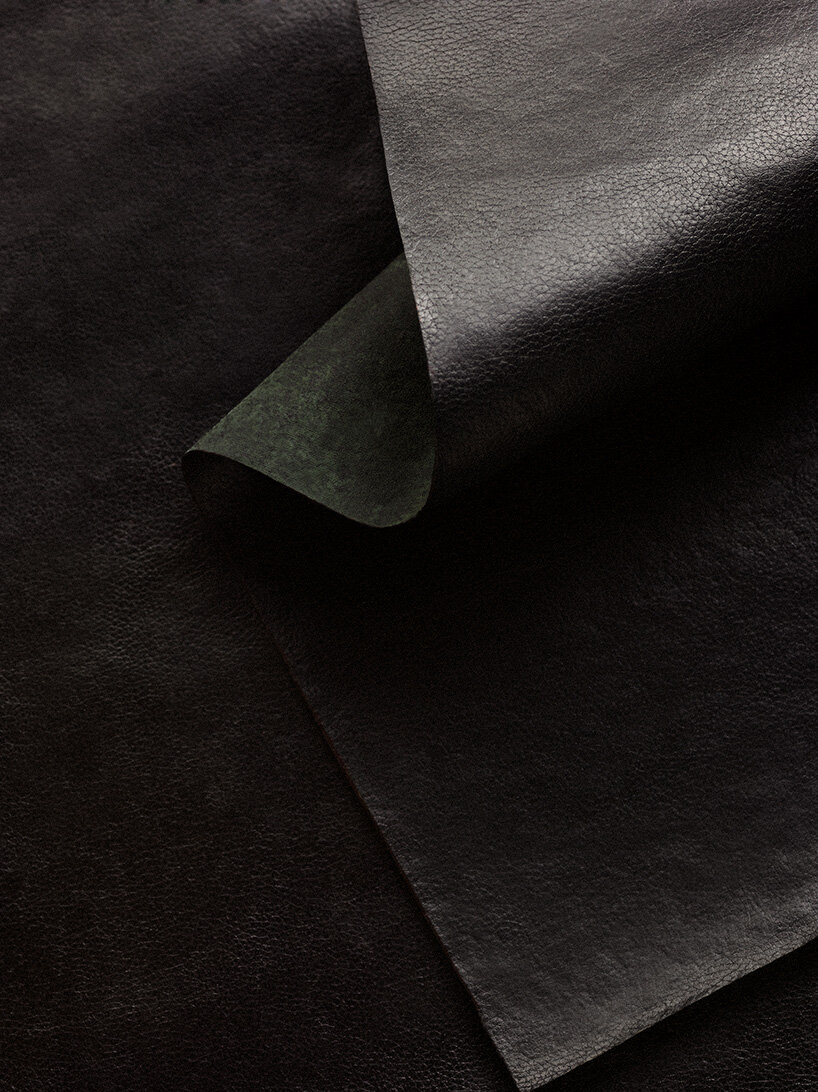
image by pol rebaque, courtesy of MycoWorks
designboom (DB): can you briefly introduce MycoWorks’ early success and the evolution of the company since then?
sophia wang (SW): when we founded the company in 2013, we began exploring some immediate applications for mycelium based on previous uses that had been utilized in co-founder phillip ross’s artwork. early product development focused on the rigid mycelium materials that phil’s artworks had demonstrated. MycoWorks’ mycelium materials were presented at the 2016 venice biennale of architecture as part of the time space existence – daring growth exhibit envisioning decentralized, local and renewable production systems based on natural building materials.
later, we began conversations with footwear brands and realized the synergy between what the product offers in regard to performance, aesthetics and what the fashion industry needs in terms of material. we became focused on how to utilize mycelium and fill this gap in product development. by 2016, we were singularly focused on what would become our first product: reishi™.
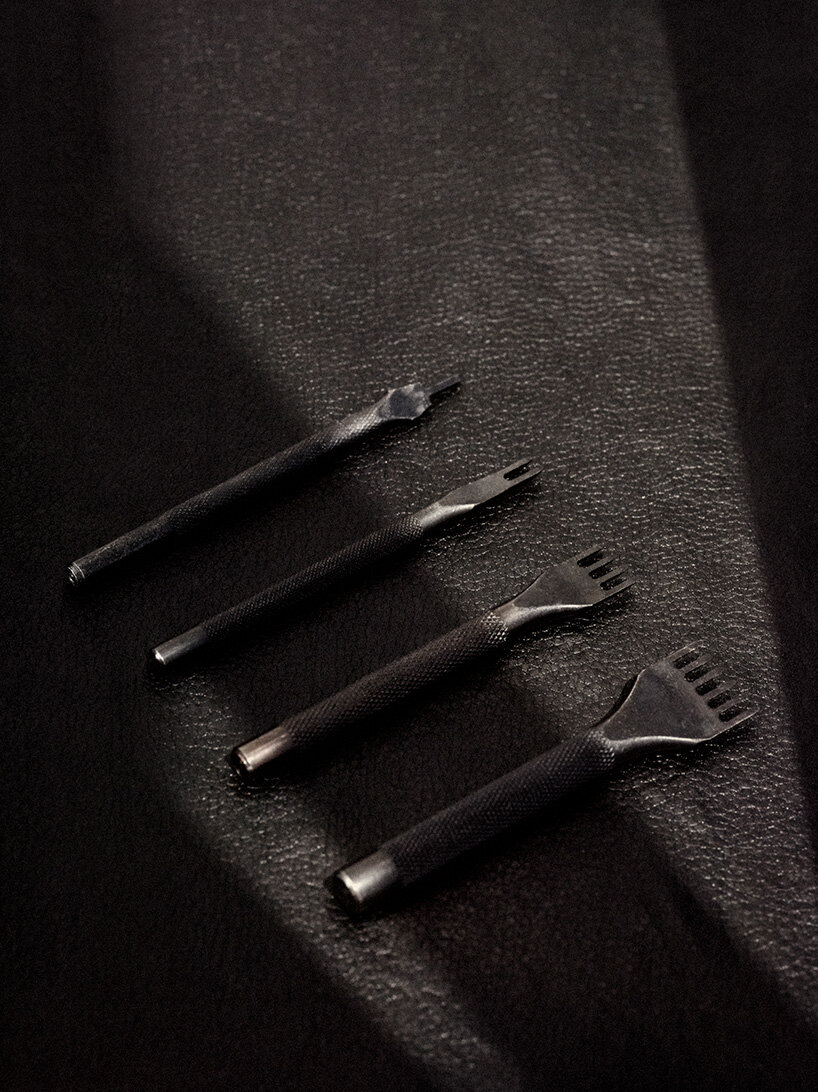
image by pol rebaque, courtesy of MycoWorks
SW (continued): reishi is a new class of biomaterial that offers fashion and footwear brands an option for fine leather, created with our fine mycelium™ technology. fine mycelium refers both to our proprietary process, and to the class of materials that are exclusive to MycoWorks. our patented technology engineers mycelium during growth to form proprietary, interlocking cellular structures for unparalleled strength and durability.
since our founding, MycoWorks has partnered with people and brands dedicated to achieving artisanal excellence and uncompromising quality in every product made with reishi fine mycelium. we rely on the tools of biotechnology, manufacturing excellence and creative, master craftsmanship.
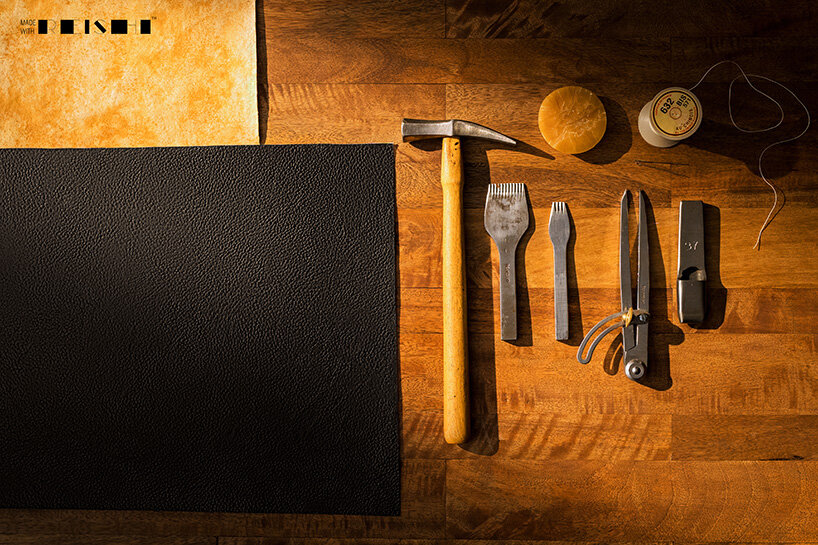
image by jesse green, courtesy of MycoWorks
DB: what have been the major breakthroughs in developing reishi?
SW: reishi is the culmination of over two decades of work in mycelium, the fine network of threads which form mushrooms, led by MycoWorks’ founding team. enabled by our fine mycelium technology, reishi is an evolution from the mycelium bricks and mushroom leather we innovated years ago, into a material that finally meets the performance standards of the fashion and footwear industries, with a sustainable approach.
the fine mycelium process is a biomaterials and manufacturing breakthrough which engineers mycelium as it grows to create the interlocking, three-dimensional cellular structures that give our materials their inherent strength. the ability to finely tune sheets of fine mycelium gives us an efficient and more sustainable process for creating natural materials customized for a range of applications. by controlling the dimensions, strength, and performance features of a custom-grown, natural material, the fine mycelium process offers a level of creative control and quality that isn’t possible with animal leathers, creating new design possibilities and minimizing waste in production and fabrication. a scalable innovation in agricultural technology and manufacturing, our tunable fine mycelium materials platform enables ‘small batch’ quality at a large scale of production.
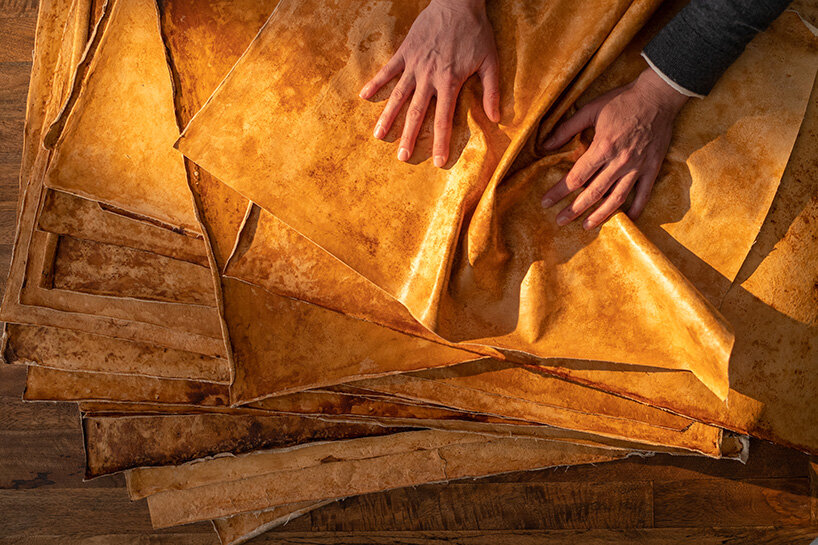
image by jesse green, courtesy of MycoWorks
DB: what does the fine mycelium process and production entail? how long does it take to engineer the material?
SW: in the early growth phase, our fine mycelium process is similar to agricultural processes used to cultivate mushrooms, drawing on similar plant-based feedstock and growing conditions. fine mycelium is an innovative method for cultivating mycelium that amplifies mycelium’s natural capacity to bind to itself and other materials, creating strong, proprietary interwoven cellular structures. we have designed the process to be entirely traceable and customizable, capturing data at key stages of growth in order to finely tune each sheet of fine mycelium to achieve desired outcomes in a matter of weeks. each sheet is grown to brand specifications for thickness, strength and appearance in an efficient process that results in minimized waste and higher quality control.
once sheets are harvested in our california facilities, we work closely with our heritage tannery partners to finish our sheets to the highest standards in leather goods. this stage can include dying, embossing, and softening to achieve a leather-like finish and feel.
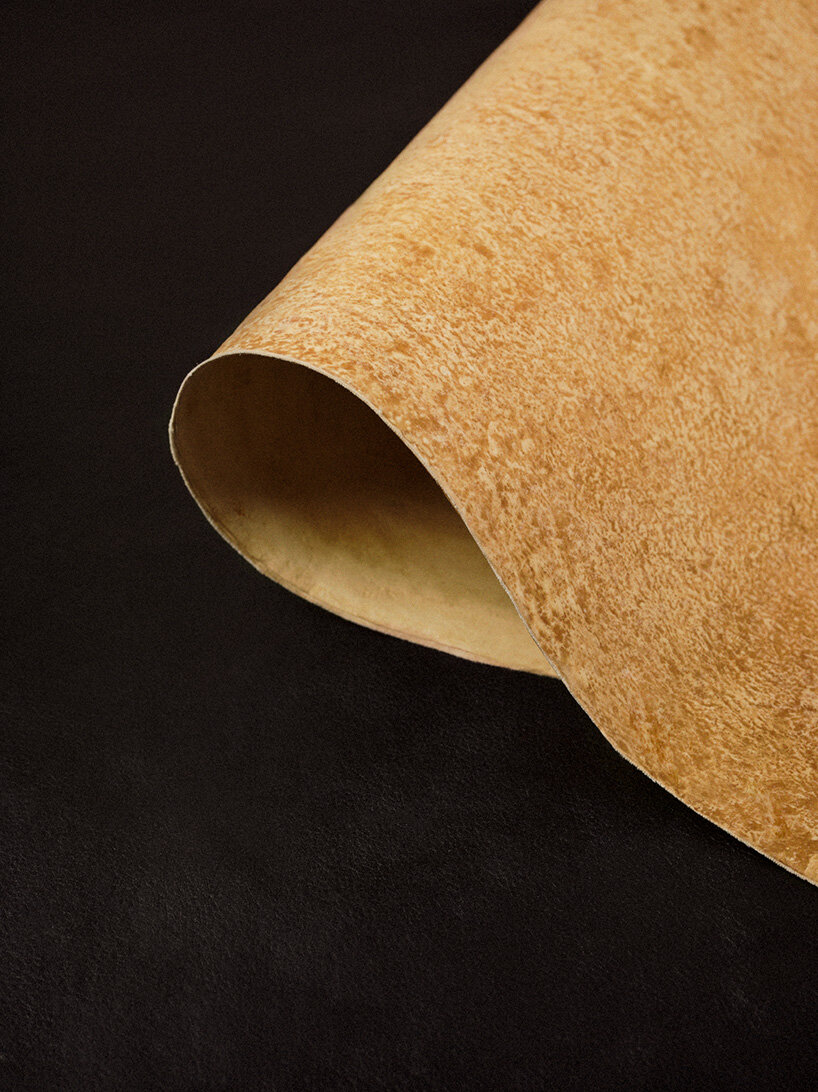
image by pol rebaque, courtesy of MycoWorks
DB: what challenges arise in the making process?
SW: a challenge that arises with any new technology is continuing to educate and build awareness of the capabilities of the product. we’re introducing a completely new material and technology to the world. this is a challenge, but also an enormous opportunity to demonstrate new possibilities and to inspire people and brands to join our journey. we are at a precipice in values-based consumer practices where buyers want more transparency, clarity and responsibility from the products and brands they support. reishi is uniquely positioned to scale, and to have a major impact on the luxury fashion and footwear industries because our approach has always been to put performance and quality first. brands and consumers are not going to sacrifice performance for sustainability. performance leads to adoption, and widespread adoption leads to impact.
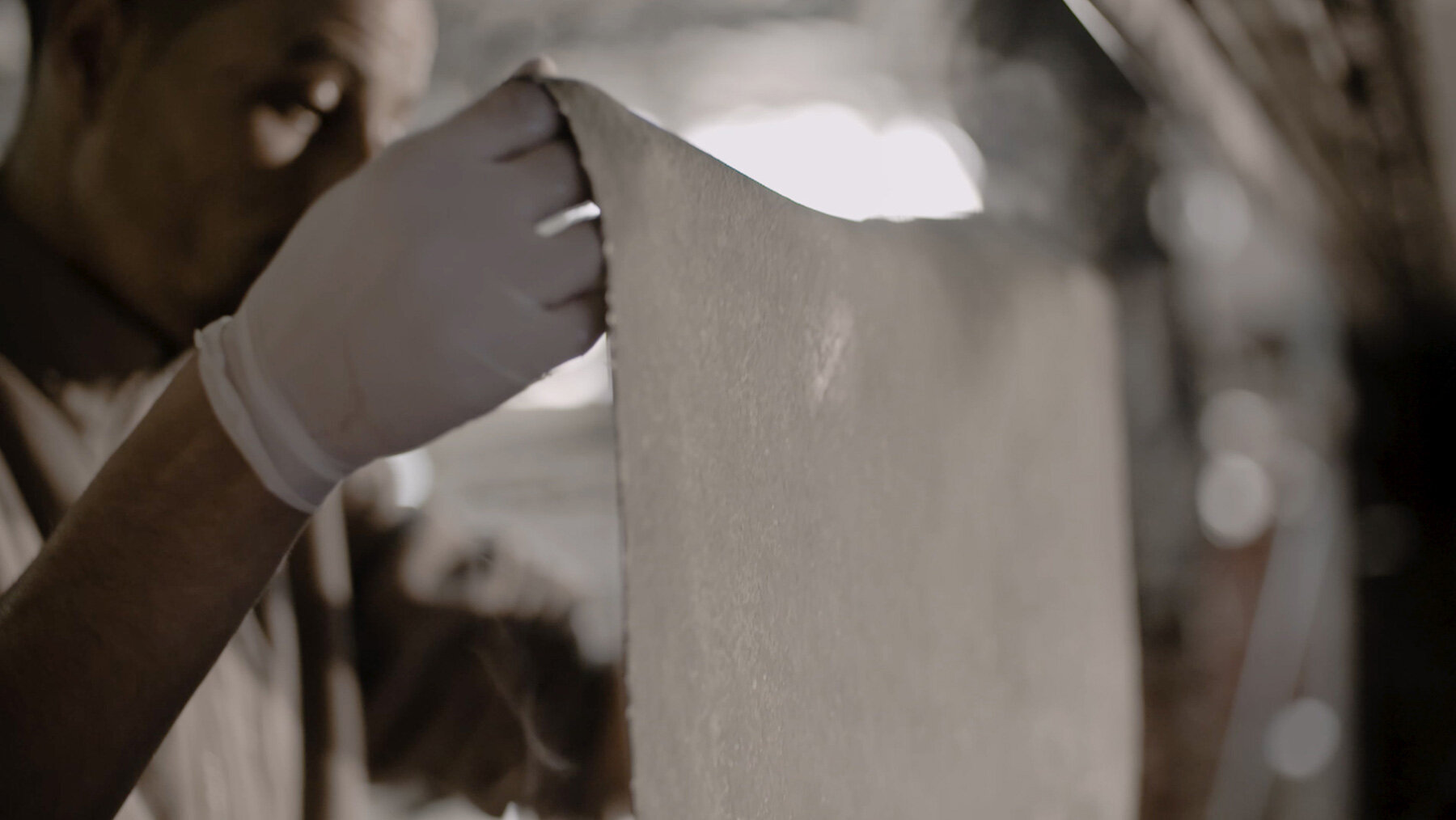
image by laura gutierrez, courtesy of MycoWorks
SW (continued): we have the opportunity to bring data-informed engineering and the tools of biotechnology to the heritage craft of leather, as we grow fine mycelium to meet the specifications of our brand partners and give designers total creative control over their materials. our process joins advanced technologies with one of human civilization’s oldest practices to create new, natural materials that can be finely tuned to create a world of design possibilities.
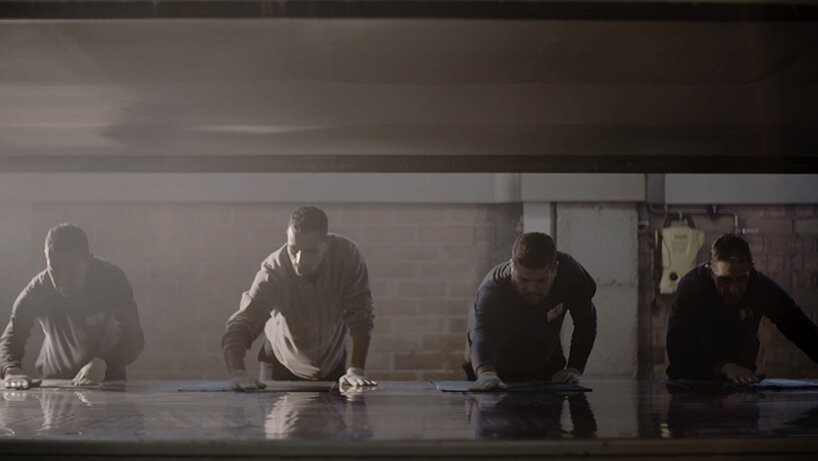
image by laura gutierrez, courtesy of MycoWorks
DB: in terms of touch and maintenance, what are the discernible differences to animal leather?
SW: our work with master artisans in leather tanning allows reishi to match animal leather in hand feel, aesthetics, durability, and strength, while also offering the unique performance and customization capabilities of fine mycelium. we are proud to have shared third party test data, which has proven that in many categories, such as durability, reishi can provide comparable performance than that of cowhide.
reishi can be embossed, stitched and fabricated just like traditional cowhide leather, offering a sustainable option that does not compromise on performance, quality or aesthetics. while it is an option for fine leather, fine mycelium is also a new category of premium, natural and non-animal material with its own unique capabilities.
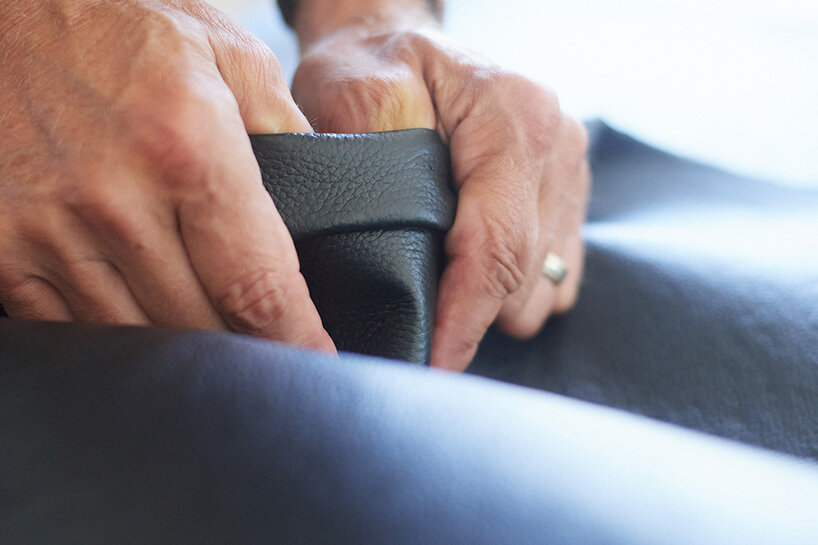
image by mike todd photography by alyssa duncan, courtesy of MycoWorks
DB: what is the current state of development?
SW: on the horizon, our patented fine mycelium platform has the potential to create a broad field of new, high performance materials and unprecedented design possibilities. we are excited for the upcoming announcements of our brand partnerships.
in preparation for these commercial launches and to meet global demand for our materials, we are scaling up production with an integrated system for manufacturing excellence that will drive the process innovations to rapidly advance our novel biomanufacturing technology.
MycoWorks raised $45M in series B financing and is currently in the process of scaling the business and opening our second factory.
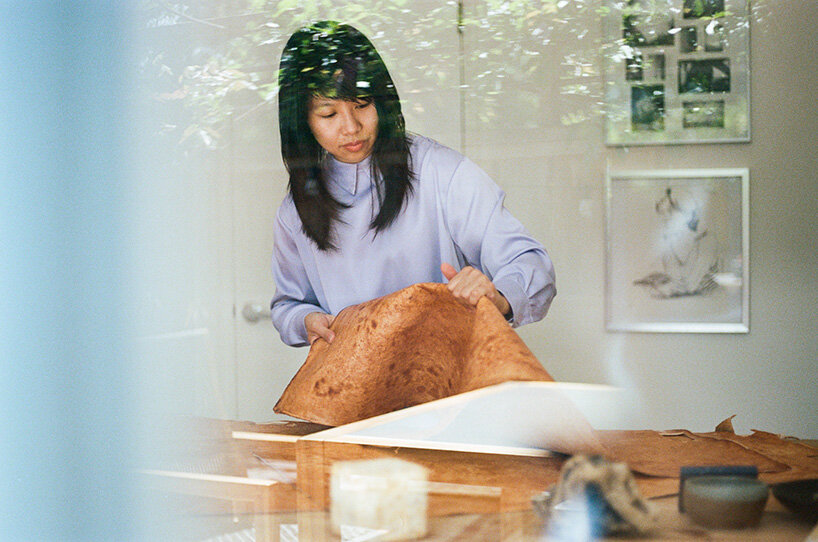
MycoWorks co-founder sophia wang with reishi fine mycelium, photo by carla tramullas
DB: what is MycoWorks’ vision for the near future?
SW: our vision as a company is to grow the future of materials. we’re really on the ground floor of what is possible with this material and we look forward to continuing to expand the capabilities of the fine mycelium process. long term, fine mycelium is a globally portable technology that can dovetail with agricultural and lumber production sites, enabling the localization of materials manufacturing, which could have major impact not only on the carbon footprint of material supply chains, but also on their overall cost structure.
as we see innovation in sustainable materials sourcing at every level in fashion and luxury, we believe that we are the only biomaterial meeting the performance and quality needs of the industry. we’ve been heartened to see that the major luxury holding companies, as well as many of the largest footwear and apparel brands, are prioritizing sustainable materials and making real changes to their supply chains in order to accommodate them.
materials (81)
mushroom mycelium (30)
MycoWorks (3)
PRODUCT LIBRARY
a diverse digital database that acts as a valuable guide in gaining insight and information about a product directly from the manufacturer, and serves as a rich reference point in developing a project or scheme.

